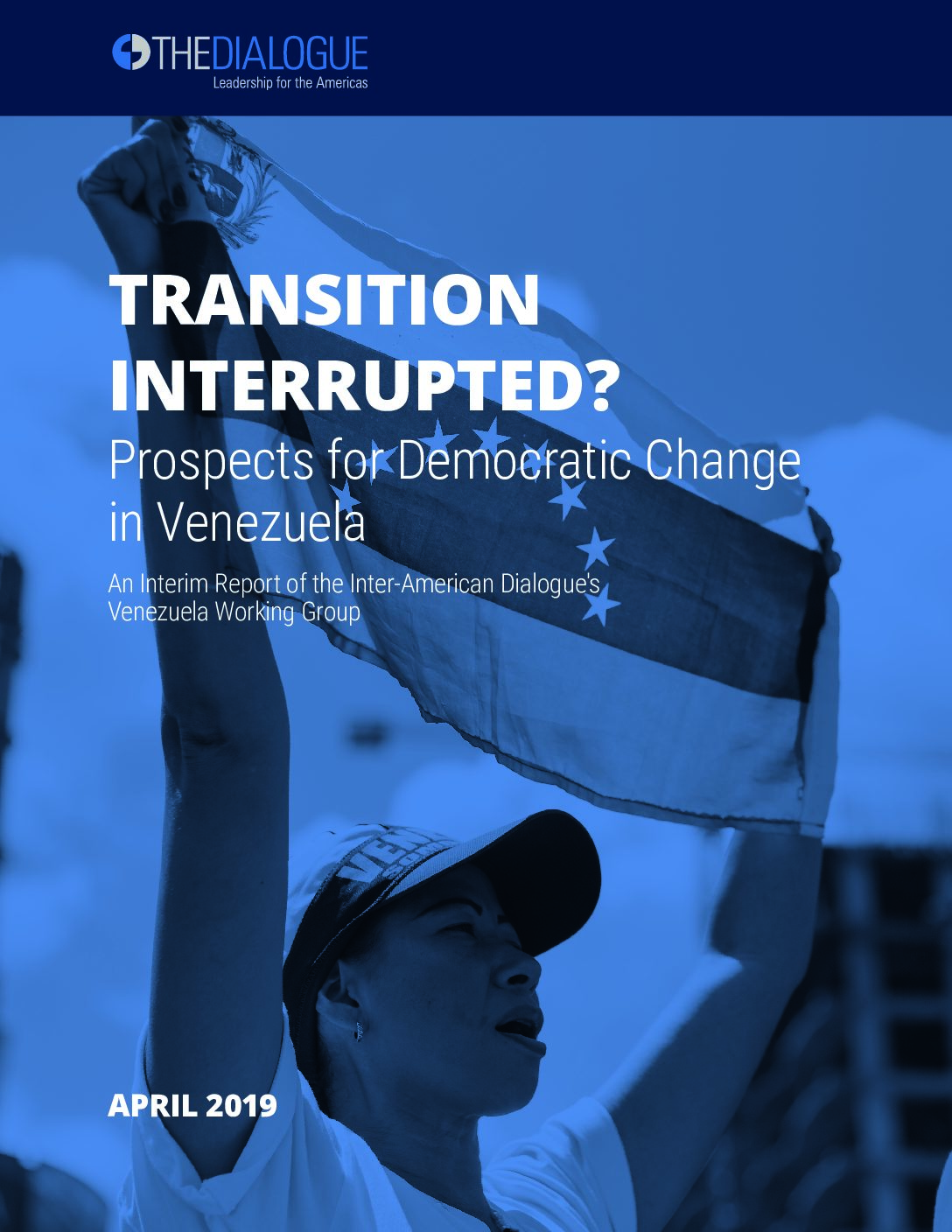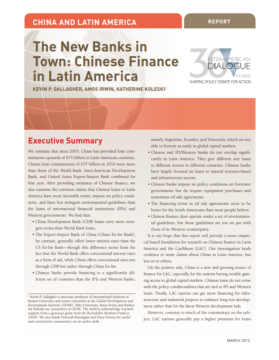Hugo Stay Home
Hugo Chavez, the Venezuelan president, has clearly been enticed by the Libyan drama, where his longtime friend and ally, Muammar al-Qaddafi, is under siege from rebel forces.
As 2018 drew to a close, Venezuela’s strongman Nicolás Maduro and his inner circle appeared to be tightening their grip on power. In the preceding years, Maduro and his governing clique had coopted or silenced virtually every democratic institution in the country, from the courts to the press to the electoral council. They stocked the senior ranks of the military with loyalists, many of them implicated in the ruling regime’s corruption, and relied on paramilitary colectivos as additional bulwarks against unrest. They responded to the 2015 opposition takeover of the National Assembly by usurping the constitutional prerogatives of the legislature, the country’s only remaining democratically legitimate institution, and creating a parallel National Constituent Assembly. They wore down their political opposition with years of persecution and repression. And they engineered via fraudulent elections a new presidential term for Maduro, consolidating Venezuela’s descent into dictatorial rule.
Just one month later, at the end of January 2019, Venezuela’s political circumstances had been radically transformed— burgeoning hope for a peaceful, democratic restoration in the country. Maduro now faces his toughest challenge since taking power in 2013: the emergence of Juan Guaidó, the young National Assembly leader who has quickly achieved widespread recognition as the interim president of Venezuela. The stunning emergence of Guaidó offered renewed hope for democratic change in Venezuela. However, such change remains far from inevitable.
A new interim report by the Venezuela Working Group, an initiative of the Inter-American Dialogue’s Peter D. Bell Rule of Law Program, aims to advance the cause of peaceful, democratic transition in Venezuela by outlining potential scenarios, analyzing the key factors and central actors that will shape future developments, and identifying risks and opportunities for those working to restore democracy in Caracas.
As a tool to elucidate the key factors and central actors shaping coming developments in Venezuela, and to evaluate potential courses of action, the report identifies three leading scenarios for Venezuela as three less likely “black swan” scenarios:
Scenario 1. “Clean” democratic transition
Venezuelan armed forces, prompted by economic, diplomatic, and popular pressure, switch their allegiance to Guaidó and clear the way for a democratic transition, involving Maduro’s resignation and the preparation for free and fair democratic elections.
Scenario 2. Extended Standoff
Maduro clings to power, riding out international sanctions with the support of the military, colectivos, and international allies including Cuba, Russia, China, while Guaidó maintains widespread international recognition and popular support. Venezuela’s humanitarian emergency continues to deteriorate as migration from Venezuela swells, putting pressure on other countries in the region.
Scenario 3. Dictator Swap
A regime or military insider pushes out Maduro and assumes control, possibly delivering greater stability and economic adjustments but also possibly greater repression and an uncertain democratic outlook. The international community and domestic opposition divide over whether to oppose or engage the new leadership.
Outlier 1. Foreign Military Intervention
Although rejected by the Lima Group, the United States insists that “all options” are on the table in Venezuela, including the use of military force.
Outlier 2: Internal Military Conflict
There is no current indication that the Venezuelan military is seriously divided, but that could change if some military leaders split from Maduro, or a barracks rebellion erupts. An internal military conflict would see colectivos align with Maduro and possibly have far-reaching regional implications if foreign militaries and/or the ELN intervene.
Outlier 3: Opposition Coup
Extreme segments of the opposition, after frustrated attempts at dialogue with Maduro or other means for democratic transition, execute a coup followed by a crackdown on Maduro loyalists. Elections would be postponed and/or rigged to exclude chavistas.
The urgent need for a peaceful, democratic transition leading to reinstitutionalization and economic recovery in Venezuela merits the full focus and support of the international community. Such a transition must be driven by the Venezuelan people, with the National Assembly’s leadership headed by Juan Guaidó at the forefront given its singular democratic legitimacy, and with the participation of all political factions.
The report’s analysis of potential scenarios and key stakeholders points to four key risks and opportunities, as well as the responses most likely to contribute to democratic change in Venezuela.
1) Remain United. The greatest source of strength for those working to restore democracy in Venezuela is the current unity among and between actors inside and outside the country. However, Nicolás Maduro’s regime will not miss a chance to exploit any divisions among his adversaries, internal or external.
2) Avoid Overreach. There is no greater risk to the unity of those committed to democratic restoration in Venezuela than overreach by one or more elements of the coalition. The most obvious such action would be resorting to the use of military force. An explicit commitment to peaceful, democratic transition can be the basis for well-coordinated multilateral pressure campaign.
3) Be Dogged but not Dogmatic. Juan Guaidó’s strategy and messaging demonstrate a sophistication that frequently eluded previous opposition leaders. He and his coalition partners are right to refuse to repeat the errors of past attempts to negotiate with Maduro. But while unconditional surrender by Maduro and his inner circle is an alluring goal, the reality of Venezuela’s current power structure—particularly the role of the military—is that the transition will be negotiated; the only question is when, with whom, and on what terms.
4) Stay Engaged. The Venezuelan humanitarian crisis is growing only worse. Democratic transition is indispensable for Venezuela to begin reversing the crisis, but the task of rebuilding the country’s economy and institutions will be long and arduous, with millions of Venezuelans likely to live beyond the country’s borders for years to come. The international community must continue to mobilize humanitarian assistance for Venezuelan refugees and migrants, maximize emerging opportunities to deliver aid within Venezuela, and prepare for the development and institution building challenges that will accompany an eventual transition.
This report is made possible thanks to support from the Open Society Foundations and the Ford Foundation.
Hugo Chavez, the Venezuelan president, has clearly been enticed by the Libyan drama, where his longtime friend and ally, Muammar al-Qaddafi, is under siege from rebel forces.
Estimates of the volume, composition, and characteristics of Chinese lending to the region since 2005.
Is the Venezuelan government likely to comply with the IACHR’s ruling or will it uphold the ban?

